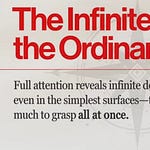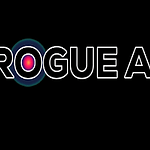The simulation hypothesis, a theory once confined to the realms of speculative fiction and metaphysical debate, now occupies a significant space in scientific and philosophical discourse. It suggests that our universe may be an artificial construct, a coded reality designed by an advanced intelligence. The implications of this proposition challenge fundamental assumptions about existence, consciousness, and the nature of reality itself. If we are indeed inhabitants of a simulation, questions arise about the purpose of such a construct, the identity of its architect, and our ability—or inability—to transcend the boundaries of this artificial environment.
At its core, the simulation hypothesis envisions a reality generated and maintained by computational processes. Scientists and thinkers like Nick Bostrom have popularized the idea, positing that advanced civilizations might create simulations so complex that the simulated beings within them attain consciousness. This perspective has gained traction as our understanding of computing, artificial intelligence, and quantum mechanics deepens. Proponents argue that the rapid advancement of technology, particularly in fields like virtual reality and neural interfacing, makes it conceivable that we, too, could be digital constructs.
Within this framework, some researchers explore the possibility of identifying the "glitches" in the system, anomalies that might betray the artificial nature of our universe. Alexey Turchin and Roman Yampolskiy have categorized simulations into two types: owned simulations, which are purposefully created by an entity, and hostless simulations, which arise organically. This typology underscores the dual nature of the hypothesis, suggesting both deliberate design and spontaneous emergence as plausible scenarios. Yet, the notion of glitches also presents existential risks. Turchin speculates that our increasing awareness of the simulation could lead the simulator—if it exists—to reset or terminate the program to preserve its integrity.
The philosophical ramifications of such a proposition are profound. Susan Schneider, a philosopher and AI expert, cautions against viewing humanity as mere errors in a grander design. She suggests that creating conscious beings would require deliberate programming, not accidental coding, emphasizing the sophistication needed for such an endeavor. Schneider’s perspective introduces a more intentional narrative, contrasting with the dystopian implications of humanity as an unwelcome glitch in the system.
In tandem with these debates, scientists like Melvin Vopson have attempted to ground the hypothesis in empirical science. Vopson’s Second Law of Infodynamics posits that the universe demonstrates characteristics akin to data optimization and compression—hallmarks of a computational system. By analyzing information entropy in biological and physical systems, he argues for a digital underpinning to our reality. While these theories are far from definitive, they provide a tantalizing glimpse into the potential mechanics of a simulated universe.
Beyond theoretical musings, the discussion extends into practical strategies for engaging with the simulation. Yampolskiy’s paper, "How to Hack the Simulation," proposes methods to probe the underlying structure of reality. These include identifying patterns or inconsistencies, exploiting quantum phenomena, and leveraging advanced AI to uncover weaknesses in the system. Such approaches blend the philosophical with the technical, bridging the gap between abstract speculation and tangible experimentation.
Yet, skepticism remains robust. Critics argue that the simulation hypothesis, while intellectually stimulating, may ultimately be unfalsifiable, resting on assumptions that elude empirical validation. Furthermore, thinkers like Omar Sultan Haque challenge the materialistic worldview underpinning the hypothesis. For Haque, the concept of a simulation arises from a secular anxiety about existence and purpose. He contrasts this with the theistic belief in a benevolent creator, suggesting that such existential fears dissipate within a religious framework. In this view, the simulation hypothesis becomes less a scientific inquiry and more a reflection of cultural and philosophical concerns.
Despite the divergence of opinions, the hypothesis serves as a potent metaphor for contemporary challenges. It forces us to grapple with questions of autonomy, purpose, and the limits of human knowledge. Whether we interpret the universe as a meticulously designed construct, a random anomaly, or the creation of a playful intelligence, the simulation hypothesis compels us to reconsider our place within the cosmos.
As humanity continues to push the boundaries of science and technology, the simulation hypothesis provides a provocative lens through which to examine our achievements and aspirations. It challenges us to imagine futures where the line between the real and the artificial becomes increasingly blurred, encouraging a deeper exploration of the nature of reality itself.












